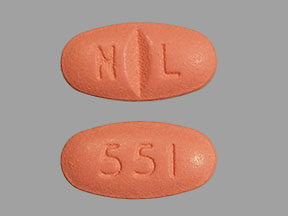
Tinidazole Coupons & Savings Card – Discount Prices from $24.15
Tinidazole, marketed as Tindamax, is an oral antibiotic used to treat specific bacterial and parasitic infections, such as bacterial vaginosis, trichomoniasis, giardiasis, and amebiasis. It is effective by halting the growth of bacteria and parasites through damage to their genetic material. This medication is typically taken once daily and can be crushed and mixed with cherry syrup if swallowing is difficult. Common side effects include a bitter taste in the mouth and nausea. It is important to avoid alcohol during treatment and for three days after, as it may cause flushing, headaches, and nausea. Tinidazole is not effective against viral infections like the common cold or flu. Misuse of antibiotics can lead to reduced effectiveness for future infections. Always consult a healthcare professional before starting any medication.
Our coupons are free to use. Before paying, show the pharmacist your Tinidazole savings card to get your free discount. Use our filters below to edit the prescription box to match your needs. The Tinidazole prices will update based on your prescription needs. Above our Tinidazole coupons, you can change your location to see pharmacy prices and costs in other areas. We're here to help you buy Tinidazole at the lowest price with our prescription discount card.
My prescription
Edit
500MG, Tinidazole (8 Tablets)
Select pharmacy

CVS
$31.35
COUPON PRICE
Walmart
$24.15
COUPON PRICE
Walgreens
$26.28
COUPON PRICE
Albertsons
$33.46
COUPON PRICETinidazole savings card
Show this card to your pharmacist
Walmart
$24.15
BIN
ID
PCN
GRP
019876
LHB2C03E40
CHIPPO
LHX
Powered by
Tinidazole, marketed as Tindamax, is an oral antibiotic used to treat specific bacterial and parasitic infections, such as bacterial vaginosis, trichomoniasis, giardiasis, and amebiasis. It is effective by halting the growth of bacteria and parasites through damage to their genetic material. This medication is typically taken once daily and can be crushed and mixed with cherry syrup if swallowing is difficult. Common side effects include a bitter taste in the mouth and nausea. It is important to avoid alcohol during treatment and for three days after, as it may cause flushing, headaches, and nausea. Tinidazole is not effective against viral infections like the common cold or flu. Misuse of antibiotics can lead to reduced effectiveness for future infections. Always consult a healthcare professional before starting any medication.
Our coupons are free to use. Before paying, show the pharmacist your Tinidazole savings card to get your free discount. Use our filters below to edit the prescription box to match your needs. The Tinidazole prices will update based on your prescription needs. Above our Tinidazole coupons, you can change your location to see pharmacy prices and costs in other areas. We're here to help you buy Tinidazole at the lowest price with our prescription discount card.
More prescriptions for parasitic infection
coupons from$37.00Save 23%
coupons from$8641.42Save 73%
coupons from$4.32Save 82%
coupons from$23.91Save 52%
coupons from$29.67Save 63%
coupons from$23.07Save 77%
coupons from$57.78Save 84%
coupons from$91.73Save 81%
More prescriptions for parasitic infection
Ivermectin Save 23%coupons from $37.00
Eflornithine Save 73%coupons from $8641.42
Metronidazole Save 82%coupons from $4.32
Albenza Save 52%coupons from $23.91
Metrogel Save 63%coupons from $29.67
Vandazole Save 77%coupons from $23.07
Biltricide Save 84%coupons from $57.78
Soolantra Save 81%coupons from $91.73
Tinidazole dosage forms
Use our Tinidazole 250MG coupon with prices from $36.60 for 20 Tablets. You can also use our Tinidazole 250MG coupon with prices from $61.81 for 40 Tablets. We have a Tinidazole 500MG coupon with prices from $24.15 for 8 Tablets. You can use our Tinidazole 500MG coupon with prices from $34.92 for 12 Tablets.
Dosage Quantity Price from Per unit 250MG 20 Tablets $36.60 $1.83 250MG 40 Tablets $61.81 $1.54 500MG 8 Tablets $24.15 $3.02 500MG 12 Tablets $34.92 $2.91 500MG 20 Tablets $50.93 $2.55 500MG 60 Tablets $116.20 $1.94
| Dosage | Quantity | Price from | Per unit |
|---|---|---|---|
| 250MG | 20 Tablets | $36.60 | $1.83 |
| 250MG | 40 Tablets | $61.81 | $1.54 |
| 500MG | 8 Tablets | $24.15 | $3.02 |
| 500MG | 12 Tablets | $34.92 | $2.91 |
| 500MG | 20 Tablets | $50.93 | $2.55 |
| 500MG | 60 Tablets | $116.20 | $1.94 |
